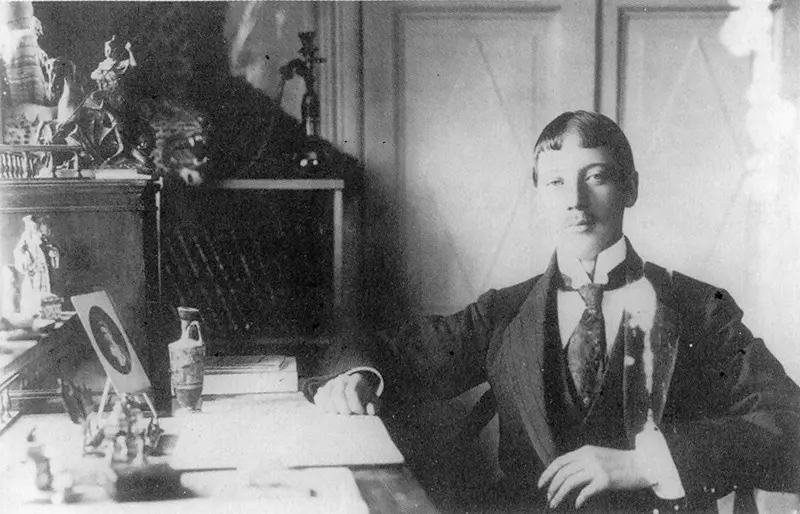There is a legend that one of the main poets of the Silver Age reflected in his works a premonition of his own execution, which occurred in 1921. We checked whether there is any reason to believe so.
Statements that Gumilyov foresaw his own execution are in materials dedicated to the poet published on portals Pravda.ru And "Paranormal News", they talked about it on air Radio Liberty. On Gumilyov's Faktrum resource turned on to the list of “poets and writers who predicted their own death.”
Even a hundred years after Gumilyov’s death, we do not know all the details of his death. On August 3, 1921, the poet was arrested on suspicion of participation in a conspiracy. On September 1, the resolution of the Petrograd Gubernia Cheka on execution, issued on August 24, was published. Gumilyov, along with other convicts, was executed before the end of August, but the exact date was unknown for a long time. Only in 2014, St. Petersburg historians installedthat the poet was shot on the night of August 26, 1921. Where exactly did this happen and where to look for Gumilyov’s grave - unknown still. In 1992, the poet was shot posthumously rehabilitated.
The authors of many texts that mention Gumilyov’s prediction of his own execution refer to the poem “Worker.” In this work the poet writes about a bullet that “will whistle over the gray, foamy Dvina” and “will find my chest.” The Dvina definitely has nothing to do with the executions in the vicinity of Petrograd. Everything becomes clearer if we take into account the year the poem was written - 1916. Just in the spring of that year Gumilyov was at the front, on the territory of modern Southern Latvia - the Western Dvina River (aka Daugava) flows there. Apparently, the passage is not talking about execution at all, but about death in war.
The list of Gumilyov’s “prophetic” poems is not limited to “Worker”. Mentioned in particular is the 1917 poem “You and Me,” also known as “Yes, I know, I’m not your match,” in which There is lines: “And I will not die on a bed, // In front of a notary and a doctor, // But in some wild crevice, // Drowned in thick ivy.” What this “prediction” has in common with real events is that the poet really did not die a natural death. There is no reliable information that he was shot “in a wild crevice, drowned in thick ivy.” As an example of prophecy lead also the poem “My Readers” - in it, as in those already mentioned, present the motive for death, however, no details coincide with the execution of Gumilyov.
We were unable to find other poems in which Gumilev predicts his own execution with any accuracy. The idea of a prophetic poem (or even prophetic poems) emerged soon after the shooting - e.g. article Julia Aikhenvald 1922, where the author discusses, among other things, the theme of death, which is often found in Gumilyov’s works. The poet's widow Anna Akhmatova in her memoirs wrotethat “Gumilyov is a poet not yet read. Visionary and prophet. He predicted his death in detail right down to the autumn grass.” Perhaps a more accurate “prediction” took place in a private conversation or in a poem that has not survived to this day, but formal confirmation could not be found.
Legend
- D. Ognev. The image of death as a worker by N. S. Gumilyov in the light of creative evolution
- E. Stepanov. Poet at war
- Notes by Anna Akhmatova about Nikolai Gumilyov
If you find a spelling or grammatical error, please let us know by highlighting the error text and clicking Ctrl+Enter.







